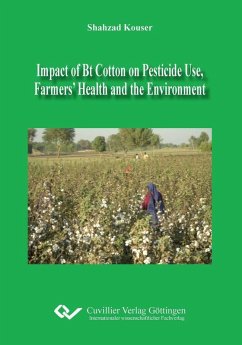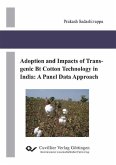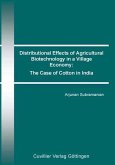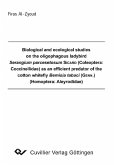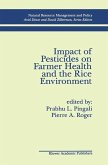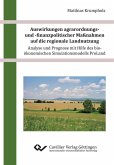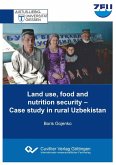Agricultural biotechnology could contribute to alleviating poverty, improving food security and health and reducing pressures on the environment. Bt cotton is one example of a biotech crop product, which is genetically modified (GM) through insertion of Cry genes from the soil bacterium Bacillus thuringiensis (Bt). These Bt genes make the plant resistant to certain insect pests, especially the cotton bollworm and related species, which are very damaging in many cotton-growing regions of the world and are responsible for intensive chemical pesticide applications. Bt cotton was first officially commercialized in 1996 in the USA. Since then, this technology has been successfully planted in 13 developed and developing countries, covering an area of 62 million acres in 2011. The inbuilt insect resistance in Bt cotton helps to reduce hazardous pesticides, which are often associated with significant health and environmental risks in developing countries, where pesticides are usually sprayed manually with little or no protective clothing. The existing literature provides empirical evidence that Bt cotton has contributed to lower pesticide use, reduced crop damage and higher farm incomes. Despite the growing body of evidence on agronomic and economic impacts, wider public controversy exists about the technology's potentials and its health and environmental risks. Particular aspects have so far received less attention in the literature. For instance, only few studies have investigated possible reductions in the incidence of acute pesticide poisonings among Bt farmers resulting from lower exposure to chemical pesticides. And, the existing studies have failed to account for unobserved heterogeneity between Bt adopters and non-adopters, which can be an important source of bias in impact assessment. Moreover, health effects of Bt cotton have never been monetized. Similarly, environmental impacts of Bt cotton, including effects on species diversity and soil and water quality, have not been evaluated economically. Evaluation and monetization of health and environmental impacts of Bt cotton is important to compare with costs and benefits associated with alternative production technologies or pest management strategies. This is an important research gap. Most of the health and environmental benefits of Bt cotton result from a reduction of negative pesticide externalities. Better understanding of these externalities may also help to establish private and social optimal levels of pesticide use with and without Bt cotton technology.
Dieser Download kann aus rechtlichen Gründen nur mit Rechnungsadresse in A, B, BG, CY, CZ, D, DK, EW, E, FIN, F, GR, HR, H, IRL, I, LT, L, LR, M, NL, PL, P, R, S, SLO, SK ausgeliefert werden.

